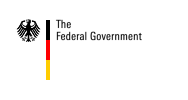The Chancellor announced that the Middle East Quartet will meet in the conflict region in an effort to intensify cooperation with the Arab states. The Quartet comprises the European Union, Russia, the US and the United Nations.
Peace in the Middle East is a top priority on the European agenda, Merkel said, and Europe has an obligation to pass on its conflict resolution expertise to others. In its capacity as holder of the current EU and G8 presidencies, Germany plays a particular role in this regard. And as Chancellor Merkel went on to explain, the Federal Republic of Germany takes its international responsibilities extremely seriously.
The Middle East Quartet meets in Berlin
Keeping up the pressure in the Iran nuclear power conflict
Merkel called for greater conformity from Iran, saying: "We have always made it clear to Iran that the door to negotiations will remain open, but not at any price.” Iran must accept the decisions of the International Atomic Energy Agency and refrain from any activity that could result in the building of a nuclear bomb, the Chancellor added. Iran is accused of wanting to build a nuclear warhead.
The Chancellor called for the international community to speak as one in order to keep the pressure up on Iran. "It was right to repeatedly seek cooperation with others, including with Russia and China”, said Merkel, referring to two of the UN Security Council veto powers.
Along with Germany, the five Security Council veto powers (USA, Russia, China, the UK and France) form a kind of steering group in deciding how to proceed in the nuclear conflict with Iran.
Merkel emphasised that a solution to the Iran conflict would have a positive effect on the tense relations between Israel and Palestine.
Still no sign of a peace offering from Syria
The German Chancellor accused Syria of doing nothing to ease the crisis in Lebanon and the Middle East. "Everything points to Syria being either unable or unwilling to move forwards and join the vast majority of the international community”, she said.
The door to negotiations remains open but "We need some small but visible signs of cooperation and they are just not there”, complained Merkel. Syria is accused of supporting radical groups and weakening its neighbour Lebanon’s position.
The Chancellor criticised the Damascus government for its attitude towards Lebanon, which has suffered ongoing crisis for months. "There are no signs of cooperation towards strengthening Lebanon’s sovereignty”, Merkel explained. "Syria could at least afford diplomatic recognition to Lebanon.”
Chancellor Merkel stressed Germany’s support for the Lebanese Prime Minister Fouad Siniora and his government.
Publishers Axel Springer and the Club of Three hosted the Eighth Annual Conference on European Israeli Dialogue. Since 1998, high-ranking figures from Israel, Germany, France, the UK and the US have met at the Berlin publishing house to discuss topical issues concerning European-Israeli relations and the Middle East peace process.
The Club of Three was founded in the mid-1990s. Its aim is to promote matters of common concern to the peoples of the United Kingdom, Germany and France.
